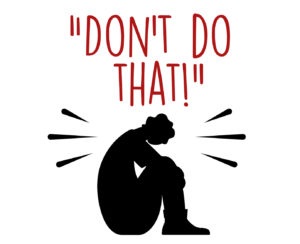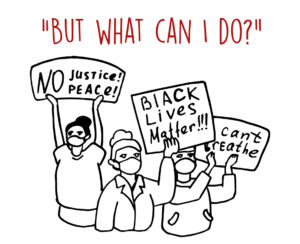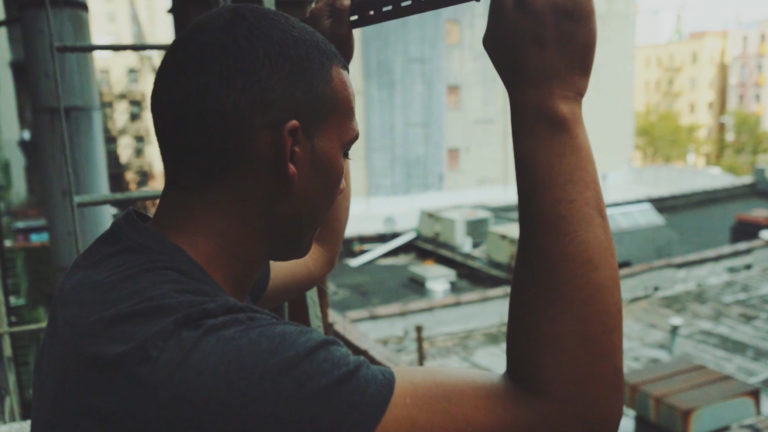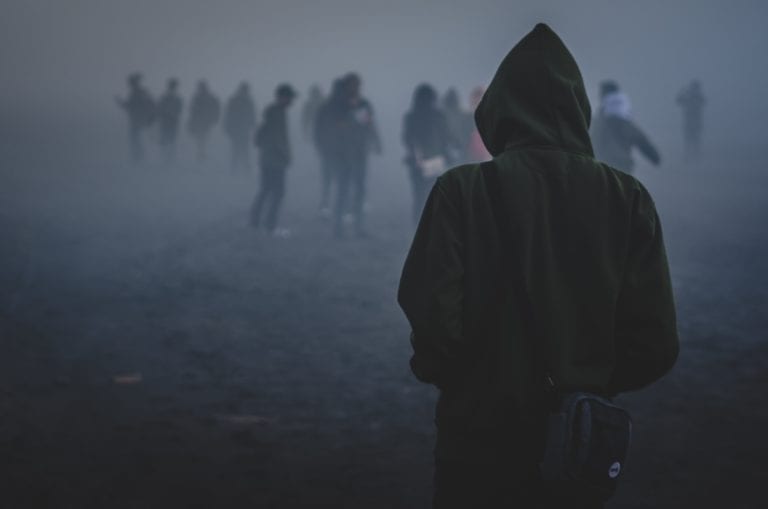Staggered breaths. Heart racing. Vision blurry. Trembling, while you try to hold still. Making eye contact – but not to the point where it might feel aggressive. Trying to listen to the officer’s overlapping and conflicting orders. Their screams. Their demands. What are they even saying? Do you put your hands up? You can’t raise them too quickly; what if they think you have a gun? What if you don’t move? What if you’re too scared? The officer tells you to quit moving and in the same breath demands that you reach out, to offer your empty hands as a supplicant – to beg, “please don’t kill me.” What do you do? What command do you listen to first, when your response could be your last?
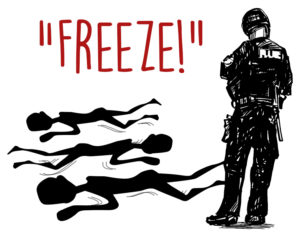
Since 2013, police have killed over 1,000 people annually in the United States.1
With police brutality at the forefront of news and headlines this year and continuing to build off of years past, it has become increasingly evident that the phrase “innocent until proven guilty” does not apply to people of color living in America.
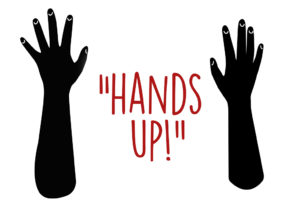
Black people in the U.S. are disproportionately more likely to be killed by the police than a White person.2 Blacks make up 13% of the U.S. population but account for 28% of police killings in 2020 so far.3
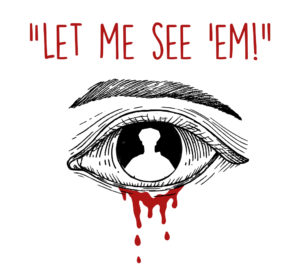
Yet, not all interactions with the police are equally deadly. Police harassment via racial profiling is a rampant effect of institutionalized racism, compounded by a lack of regulated standards in an already flawed police training system.4 This draws unnecessary and unwarranted attention to those that are Black and brown, placing them in situations they were never meant to be in. Many racial profiling victims walk away with minor inconveniences or a traffic ticket, but too often the outcome of racial profiling is death.
It’s clear then that interactions with law enforcement take very different paths when the color of your skin is a darker hue to that of the officer (especially when it’s Blacker). In 2019, 84% of Black adults said that when dealing with police, Blacks are generally treated less fairly than Whites, with 63% of Whites saying the same.5 For some, this is a numbing reality, but for others, it’s simply a sobering observation.
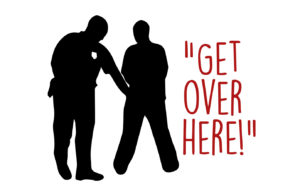
News outlets and social media tend to have a clear response to this, “if only they would comply with the officer’s orders, it wouldn’t have gotten to this point”, or the publics’ conditioned response that “they must have done something to ‘deserve’ it”. In theory, the idea of complying with orders to avoid a bad situation sounds simple, but what do you do when history does not support this notion for those who don’t identify as White?
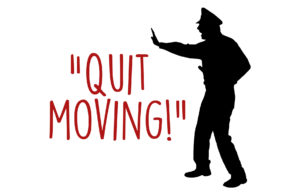
The history and continued pattern of race-based prejudice and discrimination in policing means that interactions with law enforcement have enormous stakes. Police killings cannot be separated from the idea of compliance, of obeying the demands of law enforcement officers. Compliance with demands that are often contradictory is not feasible, especially when they are used as justification for deadly force.
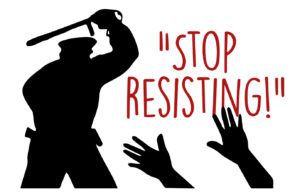
Many times, people are choked, tased, or even forced to stare down the barrel of a loaded gun and then expected to immediately follow orders. How can a person listen to orders, process them, and remain calm while under such distress? How does a person comply with a knee on their neck, cutting off critical oxygen and blood flow? What if while attempting to comply, the color of your skin is still used as an acceptable excuse for an officer to “feel threatened” and you are shot regardless? What if, even after you fully comply, while being held on charges, you are unlawfully mistreated and found dead in a cell days later?
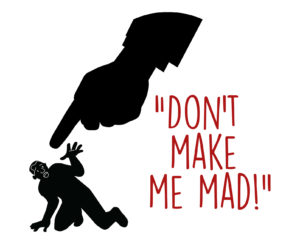
Each of those scenarios is a reality. Each of those scenarios is a death. The deaths of George Floyd, Amadou Diallo, Sandra Bland, Freddie Gray, Philando Castille, Michael Brown, Tamir Rice, Breonna Taylor, and so many more as the list continues to tragically grow. Know their names.6 Each is a person, a life that was taken, a death that left shockwaves in communities, families, and lives across social media and the world. Until there is a standard that is upheld for how individuals, of any color, are to be engaged and addressed by law enforcement, there will never be a way to prevent allegations of the “race card” from being used in situations like these. Compliance does not and cannot protect anyone when it does not protect everyone.
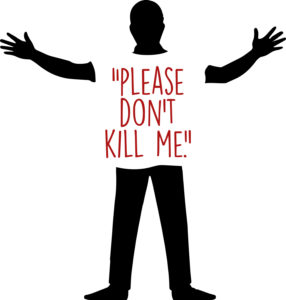
When 99% of killings by police result in officers not being charged with a crime, let alone the minuscule fraction of those convicted for these murders, we know that the judicial and legal systems have failed us.7 The police can’t police themselves,8 and from the massive response of Black Lives Matter and other social justice initiatives that are continuing to gain traction across the country — it falls on us to demand justice.
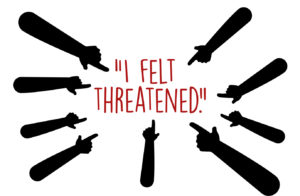
Damned if you do. Sure as hell damned if you don’t.
We’re glad you asked! You can start using your voice to call for the arrest and conviction of police officers who commit murder and more often than not are not held accountable.9 You can ask yourself why it matters what “might have occurred” before the video began, and start upholding a standard for yourself and your community on how every person ought to be treated. But most of all, you can access bravery and decide to stand up for what is truly right, instead of remaining silent. Silence is violence.
Contributors: Walter Filmore IV, Nehaa Haneef, and Cassidy Welter.
1. Sullivan, John; Weber, Liz; Tate, Julie; Jenkins, Jennifer. “Four years in a row, police nationwide shoot nearly 1,000 fatally.” Washington Post. 12 Feb. 2019.
2. Clayton, Aubrey. “The statistical paradox of police killings.”Boston Globe. 11 June 2020.
3. Mapping Police Violence. 2017 Police Violence Report. Accessed 22 August 2020.
4. Perret, Connor. “Police trainings across the US have no uniformity. Standardizing them is a step toward fixing the broken system.” Insider. 16 June 2020.
5. “Whites and Blacks Differ Widely in Views of How Blacks Are Treated.” Pew Research Center’s Social & Demographic Trends Project. 3 April 2019.
6. Chughtai, Alia. “Know their names. Black people killed by the police in the US.” Al Jazeera. 14 June 2020.
7. Mapping Police Violence. 2017 Police Violence Report. Accessed 22 August 2020.
8. Hesson, Ted; Dwyer, Mimi; Sullivan, Andy. “Videos of alleged police misconduct went viral. Then what happened?” Racial Justice Protests. Reuters Graphics.
9. CNN Editorial Research Team. “Controversial Police Encounters Fast Facts.” CNN. Updated 7 Sept. 2020.

